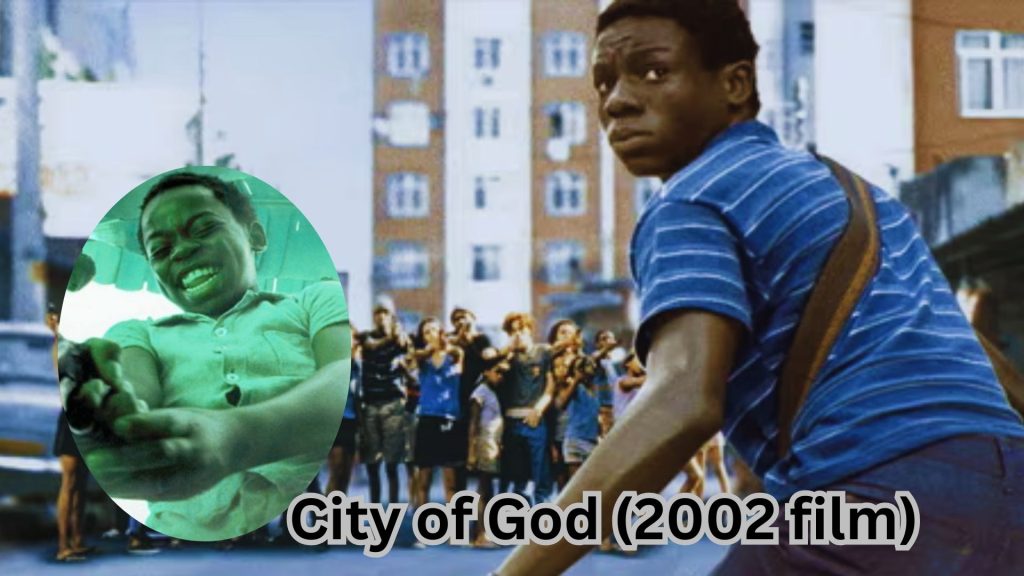
Is City of God Based on a True Story?
When we delve into the captivating world of cinema, few films strike as powerful a chord as “City of God” (Cidade de Deus), directed by Fernando Meirelles and Kátia Lund.
Released in 2002 and based on Paulo Lins’s 1997 novel of the same name, the film paints a stark and vibrant tableau of life in the Cidade de Deus, a suburb of Rio de Janeiro.
But as we explore the gritty narrative portrayed in this cinematic masterpiece, one question often arises: Is “City of God” a true story?
The Roots in Reality
“City of God” draws heavily from real-life events and characters that populated the eponymous neighborhood from the late 1960s through the early 1980s.
The novel’s author, Paulo Lins, was raised in the City of God, and his detailed observations and experiences breathe authenticity into the storyline. While the characters are fictionalized amalgamations of various individuals, their stories are grounded in the harsh truths of the community’s challenges with violence and organized crime.
Main Characters and Their Real-Life Inspirations
The film’s central figures—Rocket, Li’l Zé, Benny, and Knockout Ned—while not direct representations, reflect the types of individuals who might have lived in the City of God during this tumultuous period. Rocket, the aspiring photographer who narrates the story, offers audiences a lens through which to view the community’s complex social dynamics and conflicts.
Li’l Zé, a sociopath who rises to power through crime, represents the brutal leaders who capitalized on the chaos to establish their control. Meanwhile, characters like Benny, who dreams of a better life, and Knockout Ned, a man driven to vigilantism, showcase the varied responses of individuals to their circumstances.
Why Is City of God Rated R?
Given its raw depiction of violence, drug use, and the harsh realities of gang warfare, “City of God” earned an R rating. These elements, while disturbing, are essential for portraying the environment from which the story springs, contributing to the film’s authenticity and emotional impact.
Critical Acclaim and Cultural Impact
Since its release, “City of God” has not only received widespread acclaim but also nominations for four Academy Awards, cementing its place in film history. The movie’s legacy extends beyond the silver screen, influencing other media such as the TV series “City of Men,” which further explores the lives of those in Brazilian favelas.
Is City of God a Typical Brazilian Film?
While “City of God” is set in Brazil and deals with specifically Brazilian issues, it transcends cultural boundaries with its universal themes of ambition, desperation, and survival. Its documentary-style cinematography and raw narrative approach set it apart from typical Brazilian cinema, offering a unique and immersive viewing experience.
Why Is City of God Such a Good Movie?
“City of God” captivates audiences with its dynamic storytelling, powerful performances, and compelling direction. It merges aesthetic innovation with poignant narratives, making it a standout film that resonates with viewers worldwide. Its ability to convey profound truths about human nature and society contributes to its status as a cinematic gem.
Is City of God Worth Watching?
Absolutely—whether you’re a fan of intense drama, a student of film, or someone interested in the socio-economic challenges of urban environments, “City of God” offers a gripping and enlightening experience.
Legacy and Recognition
The influence of “City of God” on global cinema is undeniable. By bringing the stark realities of Brazilian favelas to international audiences, it not only raised awareness about issues of poverty and violence but also showcased the power of Brazilian filmmaking.
Conclusion
While “City of God” incorporates elements of fiction for narrative cohesion and dramatic effect, its roots are deeply embedded in the true experiences of those who lived in the City of God. It stands as a poignant exploration of the human condition, making it a must-watch film that is as educational as it is entertaining.
For those interested in the interplay between fact and fiction in cinematic storytelling, “City of God” serves as a profound case study in the power of film to reflect and shape reality.
Explore the intricate layers of this story and other factual cinematic narratives at Is True Story, where we unravel the truths behind the silver screen.






